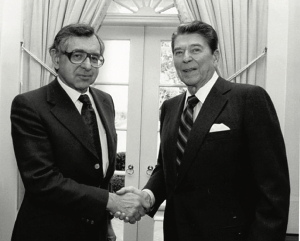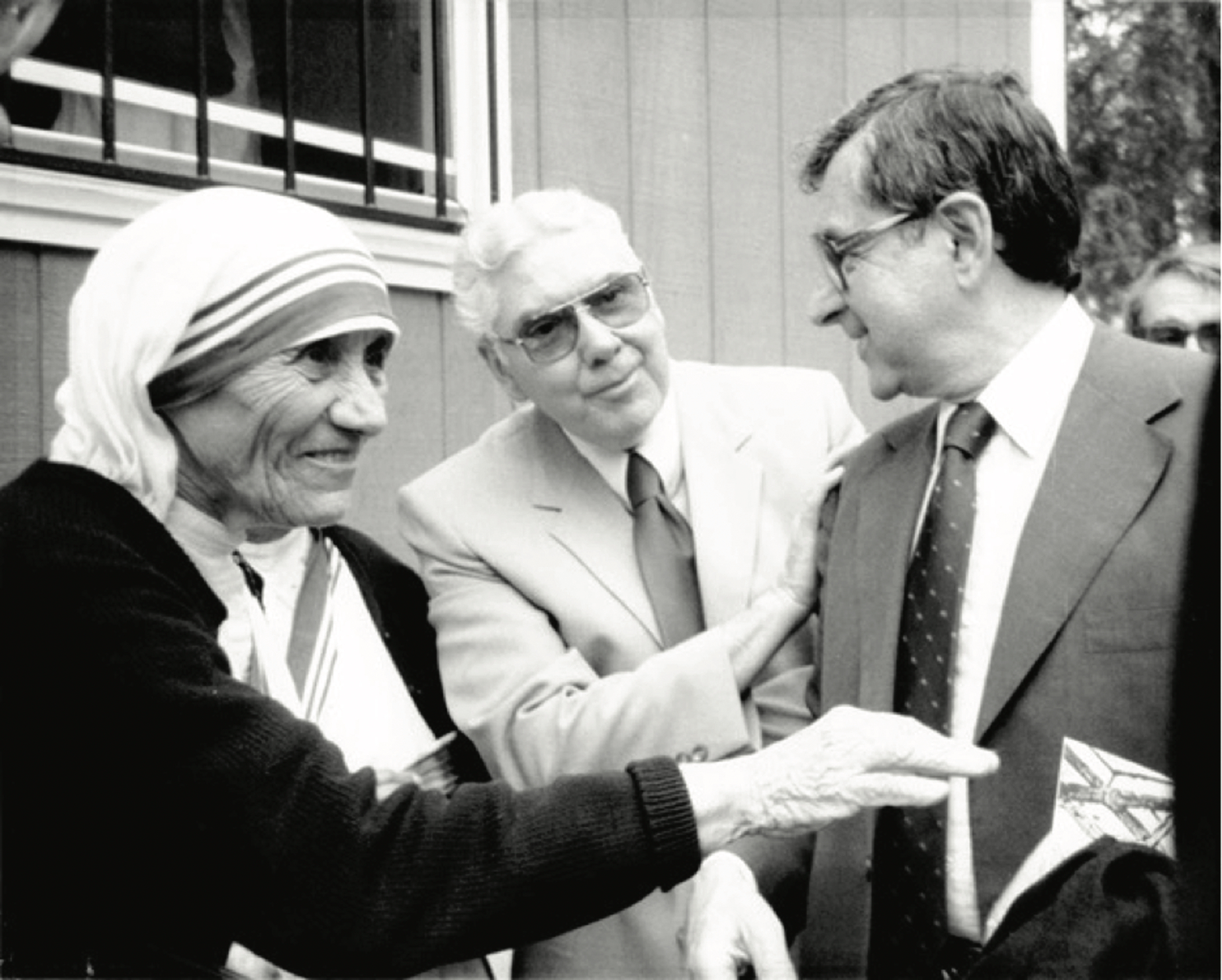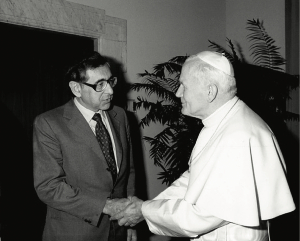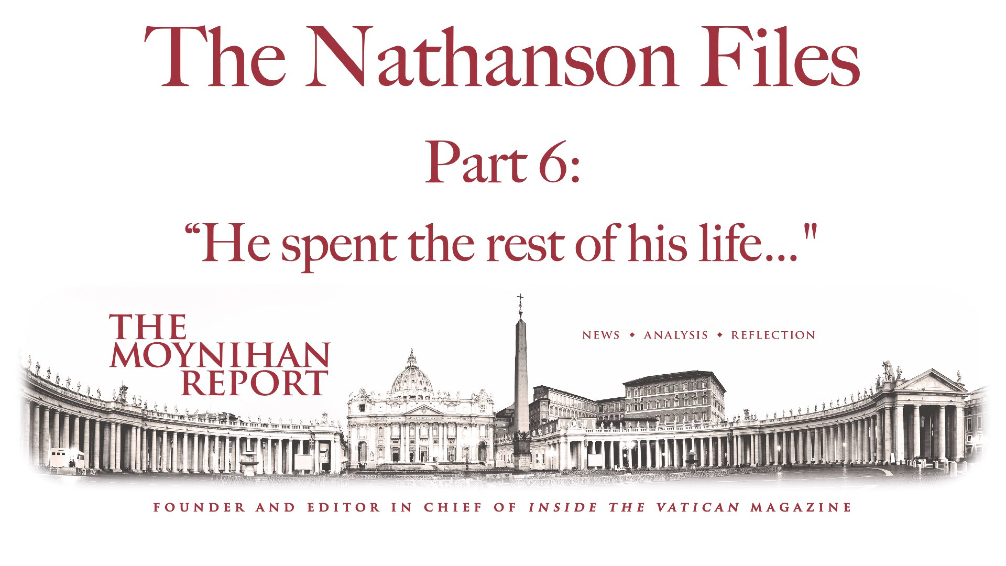Letter #179, 2021, Fri, Dec 17: The Nathanson Files, Tape #6: “He spent the rest of his life…”
I sat down in November for an interview with Terry Beatley, author of “What if We’ve Been Wrong?” and president of the Hosea Initiative, discussing how the abortion industry has deceived Catholics.
The sixth part of this interview has been posted and is now available on Rumble (link) and YouTube (link).
All of the tapes from this interview will be posted on our Rumble channel and YouTube channel so be sure to subscribe and turn on notifications to ensure you do not miss any content.
Click the video below for the sixth part of the interview in which, Terry Beatley describes how Dr. Nathanson lived out his faith in an effort to support women.
***
Note to all readers: We are continuing our Christmas fund-raising drive. We hope to raise $30,000 between now and December 31 to support these letters, interviews, videos, and analyses during the upcoming year. Please go to this link to make your donation.



Above left, the late Dr. Bernard Nathanson (1926-2011) meets US President Ronald Reagan; center, Dr. Nathanson and St. Mother Teresa of Calcutta; right, Dr. Nathanson meets Pope John Paul II
Here is the transcript of the sixth tape from The Nathanson Files:
Tape #6 The Nathanson Files: “He spent the rest of his life…”
This is part 6, in which, Terry Beatley describes how Dr. Nathanson lived out his faith in an effort to support women.
Robert Moynihan: So you are telling us that Dr. Nathanson had an enormous mid-life change, converted from Judaism to Catholicism and he completely changed his attitude toward what he had committed his life to, which was abortion. I find this fascinating.
Can you explain any further how he understood what he was doing and how he felt that it was the moral choice to make?
Terry Beatley: Well, what he left behind in his resignation letter was a warning.
And the warning was as long as abortion was legal, we would see increased violence, increased public turmoil, and the disintegration of the American family.
And that was just the tip of the iceberg. He wrote that on January 22, 1975.
And indeed all those warnings have come true, but he also warned of something else.
And he spoke about this, I believe at Princeton, and he wrote about it, is the trickle-down effect, the economics behind abortion, which is something that most people never take into consideration, that this is an industry of killing people.
So, if you just run the numbers in New York back in 1970, when they, this is pre-Roe v. Wade, when they made abortion, a very aggressive abortion bill making New York the abortion capital of the Western Hemisphere.
It was an overnight 75 million dollar industry of killing babies and exploiting women. So, he deeply grieved all this.
Moynihan: Now this industry, it does sort of chill, give one a chill, to think of dealing with parts of fetuses and turning them into packages that you send out for medical purposes.
People, I guess, like the thought that they have new technologies that can help solve illnesses.
But what is really happening here is a dependency on a sort of supply line of fetuses, which creates a clientele in support of this and dependent on it and of financial interest in it, which is a frightening development and a really increasingly powerful one. Is this the case?
Beatley: Absolutely, and he warned about all of these things.
He warned about if we don’t do away with abortion, euthanasia will become a normal thing.
And so, going back, though, to the fetal baby body parts.
You know, it’s the baby body part industry, which we now know exists, all those videos are out there, I am sure most people have at least heard about it by now.
Moynihan: What videos are you referring to?
Beatley: The David Daleiden videos where he reveals on undercover camera, I think they call it Center for Medical Progress, that Planned Parenthood doctors, as well as others, admitted to basically the purchasing of the baby body parts for profit.
So that all that’s been caught on videotape.
But Dr. Nathanson, not only warned about the commodities market for baby body parts, but he also warned that there would never be enough voluntary abortions to provide enough fetal tissue for all the different scientific studies that want to be made and then if they do indeed do produce a positive effect, let’s just say in healing people of Parkinson’s Disease, that requires a certain amount fetal tissue at a certain age of the baby.
So in his book, The Hand of God, he computes this.
And then, you are reading it and you realize, “Oh my gosh,” because now it’s this economic factor, there’s a profit margin in the commodities market of baby body organs.
He warns that if we don’t end abortion, the next leg of this issue will be fetal tissue farms.
Moynihan: Fetal tissue farms…
Beatley: Yeah, where, out of the womb, they are making babies in a test tube.
They are growing babies to a certain size and then boom.
And they need the tissue because of the demand and the money.
Moynihan: This is like in the film, The Matrix.
Beatley: Yes, yeah.
Moynihan: But it’s one of the paradoxes of this and one of the amazing facts of this life of Dr. Bernard Nathanson, that he should be a firsthand witness and a first-place actor in both of these areas.
First, opening up the avenue and developing a strategy, performing abortions himself, so that the country reversed what previously it had held. Regarded the fetus really as of no importance, with no rights.
And then he himself felt nauseated by what he had done. He saw the video of the embryo. He saw that this was a developing human being.
He said, “We must find a way to give some protection, some value to this life.”
But as the other parts of his life proceeded forward, that devaluation continued a pace and even increased as it’s now a commodity to be even produced and sold.
And he was at first suicidal, as you’ve described, then he went through a long process of discernment.
And, he finally came to a different faith, a deeper faith, and he entered the Catholic Church.
Now the last phase of his life, he became a prominent international speaker for a different type of culture.
And now, can you describe that last phase of his life as he tried to find a basis for protecting the baby without denigrating the mother?
Beatley: He spent the rest of his life really spreading the Gospel of love, the Gospel of life.
And I think that’s why it’s so key, his parting message, to tell America to love one another, abortion is not love, stop the killing, the world needs more love, and that he was all about love now.
And so he could imagine America without abortion.
He could imagine if women, I mean let’s face it pregnancy is a short term thing, abortion is a life-long thing.
You cannot undo an abortion.
And so, he looked at this today, because of abortion to a large degree, there are so many women who cannot conceive or they are ending up with miscarriages.
Moynihan: Wait. Is that true that really true, that abortion limits your fertility?
Beatley: Yes, because it wrecks the womb. Yes. That is a fact.
And it weakens the cervix and then more and more women are having miscarriages because the cervix is so weak.
Moynihan: How does it wreck the womb? What is the…
Beatley: Well, I couldn’t tell you that, but I don’t know and I wouldn’t even try to describe it.
Moynihan: I mean what is the diminished level of fertility?
Beatley: Most of it has to do with the cervix, weakening the cervix.
So the women are having miscarriages because it is not strong enough to hold the baby.
Moynihan: What I was really trying to do was to get at the question of the general culture and the two ways that one can take.
One is a culture where you exploit the fetus, and you kill the fetus and you buy and sell the parts of the fetus.
And the other would be culture where you regard the fetus as something intrinsically dignified, sacred, something to be protected, something not to be bought and sold. In a sense, when you speak of parts of the body of a fetus being bought and sold, you’re talking about some type of slavery.
It’s the destruction and then the selling of the tissues of the dignified human being.
So the indignity of that, the way it diminishes our respect for life, for the human person, ripples throughout the culture.
So a cornerstone of the culture of life would be the protection of the embryo, the protection of the developing human being.
But this effort to protect the embryo is blocked by the idea that it harms the women.
So the necessity now is to create a culture which will protect the embryo, the developing human being, as an intrinsically dignified entity, while supporting the women.
Is this your view and the view of Dr. Nathanson?
Beatley: It is indeed. And I think we can accomplish both.
And I think first it is recognizing that we are talking about human life, human life of the woman, human life of the baby in the womb.
So I think once we can all be in agreement that the lies of yesteryear, that we are not talking about a baby or human life, that’s gone.
So now we have a newfound reality that we are talking about human life.
So then, I think a couple other factors come into play.
That of yesteryear, maybe an unwed pregnant woman would have lost her job or she didn’t have career opportunities, those days are gone as well. I mean, that’s almost normal to whatever degree.
So, one of the biggest factors, the economic factor, that’s gone.
And if a woman truly doesn’t want the baby nor could afford the baby when brought full term, there is such demand for adoption today.
Because there are so many infertile women, that there is demand for an infant.
And so, when we go back to the words of Dr. Nathanson about love, what I challenge Americans with is, let’s start imagining what would it look like if every woman who doesn’t want her baby, she can provide life for that child to a couple who would be so overjoyed, being able to have an infant.
And there would never be a surplus. There would never be a surplus.
In fact, I think a study was done about the number of abortions and the number of infertile couples, and it’s almost equal.
You know, imagine a city, like let’s say Chicago, or you know, you think about all those young men who are killing each other, and this is just my hypothesis, how do you teach a young man in Chicago not to go kill somebody when there’s an abortion center every five blocks?
And they all know human life is being destroyed in there.
So, I think if we can begin imagining a culture of love, a culture of life, and go back to the words of Dr. Nathanson, “What if we’ve been wrong?”
What if, what if there’s a better way than destroying life and exploiting women in an industry that literally makes millions and millions of dollars. There’s got to be a better way.
(to be continued)
Our Work: An Overview
We ask you to support Urbi et Orbi Communications with a small or large contribution, at this difficult time, in order…
(1) to keep Inside the Vatican Magazine (which we have published since its founding in 1993, 28 years ago) independent and comprehensive… Now available to you digitally as well as in print! Now offering Virtual Events, ITV Writer’s Chat and Reader’s Chat!
(2) to ensure that Inside the Vatican Pilgrimages can keep creating encounters.
(3) to help bring the Catholic Church and the Orthodox Churches closer together by “building bridges” through our non-profit Urbi et Orbi Communications.
(4) to sustain our occasional news and analysis emails, The Moynihan Letters, bringing valuable information and insight to thousands of readers around the world.
Please, do not overlook this opportunity to work with us. We very much appreciate your gift, whether small or large.
Thank you.
In Christ,

Dr. Robert Moynihan and the rest of the Urbi et Orbi Team











Facebook Comments